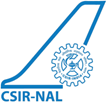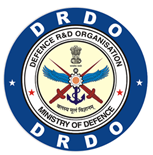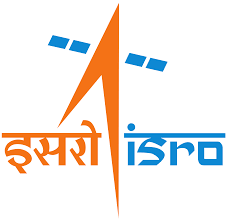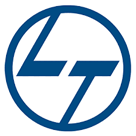- Degree Course Type
- Entry Level Qualification
- Degree Course Duration
- Course Fields
- Degree Course Entrance Exam
- Average Course Fee
- Average Salary Offered
- Course Details
- Course Highlights
- About Course
- Why Choose Course And Required Skills
- Eligibility
- Entrance Exams Details
- Degree Course Syllabus
- Top Colleges
- Course Fees
- Top Recruiters And Salary
- Course Scope And Career Options
- Admission Process
DID YOU KNOW?
This section was developed with support from NTPC CSR
Course Details
AEROSPACE ENGINEERING
Degree Course Type
Bachelors
Entry Level Qualification
Class 10+2
Degree Course Duration
3 Year
Course Fields
Engineering
Degree Course Entrance Exam
Average Course Fee
100000 - 300000
Average Salary Offered
600000 - 1200000
Course Highlights
Aerospace engineering is concerned with the design, development, testing, and maintenance of commercial and military aircraft and spacecraft. Aerospace engineering emerged in the late nineteenth and early twentieth centuries. Candidates who are planning to pursue aerospace engineering can go through the highlights given below and get an idea about the course.
Particular | Details |
Profession | Aeronautical Engineering |
Industry | Aerospace industry |
Aeronautical Engineering Eligibility Criteria | Candidates must have passed Class 10 and 12 with physics, chemistry, and mathematics as compulsory subjects with a minimum of 60% marks(55% for SC, ST) |
Aerospace Engineering Entrance exam | AIEEE, SET, IIST, JEE Main, JEE Advanced, GATE |
Aerospace Engineering Specialization | Aeronautical Engineering and Astronautica Engineering |
Top Aerospace Engineering colleges in India | Amity University, Noida IIT Bombay IIT Madras Lovely Professional University |
Top Aerospace Engineering colleges in abroad | Harvard University, USA University of Manchester Technical University of Munich University of Oxford, UK |
Aerospace Engineering Fees In India | INR 60,0000 LPA to INR 5,00,000 LPA for bachelor’s degree |
Required skills | Analytical Skills, Quantitative Skills, Product Desing Creative, Attention to Detail, Problem Solving, Strong Mathematical Abiliites, etc, |
Aerospace Engineering Jobs | Aircraft/Spacecraft Designer, Military Aerospace Engineer, Inspector and Compliance Officer, Aerospace Technician, Mission or Payload Specialist |
Aerospace Engineering salary (Approx. Estimate) | INR 4.5 LPA to INR 8 LPA for beginners INR 15 LPA to INR 20 LPA for experience |
Top Aerospace Engineering recruiters in India | Indian Space Research Organisations (ISRO), Hindustan Aeronautical Limited (HAL), National Aerospace Laboratories (NAL), Defence Research And Development Organisation (DRDO) |
Top Aerospace Engineering recruiters in abroad | Airbus and Boeing |
About Course
Aerospace engineering is a discipline of engineering that teaches students how to design, build, and repair spacecraft, airplanes, missiles, and weapons systems. Candidates can pursue an aerospace engineering course after completing their Class 12th from the science stream from a recognized board. Mechanical engineering makes up a significant portion of aerospace engineering and covers a wide range of subjects, such as computer application, structures, mathematics, physics, drawing, electricity, robotics, aeronautics, etc. To pursue aerospace engineering candidates must have scored a valid percentage in class 12th and pass the entrance exams like JEE Main, JEE Advanced, SET, etc.
Aerospace engineering graduates can find career opportunities with governmental organizations, manufacturing companies, the International Space Station, or airlines. Some of the top aerospace engineering recruiters are HAL, ISRO, DRDO, Airbnb, etc. The aerospace engineering courses are available in online and offline mode and are offered at the diploma level, bachelor's, master's, and doctoral levels. Some of the top aerospace engineering colleges in India are IIT Madras, IIT Bombay, Manipal Institute of Technology, IIT Kharagpur, etc. And, the aerospace engineering fees in India range from INR 6,00,000 LPA to INR 5,00,000 LPA for a bachelor’s degree.
Why Choose Course And Required Skills
With the advancement in the space sectors, the countries are growing their air force and looking forward to making their mark in space. There is a great need for space crafts, satellites, airspace instruments, etc. To cater to these needs several aerospace engineers are required making aerospace engineering a prospective profession.
Skills required for Aeronautical Engineering Course
Aerospace engineering is a highly specialized technical degree that necessitates a high level of mathematical, calculative, and observational abilities. Because research in this discipline takes years to complete, perseverance and tenacity are essential. To be a successful Aerospace Engineer, you must have the following qualities/skills:
1. Excellent academic credentials in the Science fields
2. Proficient Analytical and quantitative abilities
3. Product design creativity and innovativeness
4. Attention to detail
5. Ability to operate under pressure and for lengthy periods of time
6. Scientific knowledge
7. Physical endurance
8. Capability to operate in a team and lead a team
Eligibility
If you are fascinated by how airplanes and aircraft are made and developed, as well as what the mechanism of flying airplanes is, aerospace engineering is the profession for you. Engineers in the aerospace industry work on planes, space shuttles, satellites, and even weapons. In order to become an aerospace engineer, you should fulfill the following eligibility criteria
Aerospace Engineering Eligibility Criteria for Diploma
To get admitted to the diploma in the aerospace engineering program, the candidate must have a minimum of 50% in your class 10th test, with science and math as mandatory courses
Aerospace Engineering Eligibility Criteria for Undergraduate Degree
Passing higher secondary or Class 12 with a minimum of 60% (55.5% for SC/ST) in Science is the minimum qualifying condition for pursuing a B.Tech Aerospace Engineering (Physics, Chemistry, and Maths)
Aerospace Engineering Eligibility Criteria for Master’s Degree
1. The majority of degree programs in aerospace engineering are given at the post-graduate level. For this, the candidate must have a Bachelor's degree (BE/B Tech or equivalent) with a minimum of 60% (55 % for SC/ST).
2. GATE scores are necessary for entrance to postgraduate and doctoral programs, as well as research.
3. Candidates with a three-four year engineering degree, a technical diploma, a five-year architecture degree, and a postgraduate degree in mathematics/science/statistics/computer applications are also qualified to study Aerospace Engineering.
Aerospace Engineering Eligibility Criteria for NASA
If you want to work for the National Aeronautics and Space Administration (NASA) in the United States (US), you should know that NASA recommends a degree in Biomedical Engineering, Ceramic Engineering, Chemistry, Industrial Engineering, Materials Engineering, Metallurgy, Optical Engineering, and Oceanography.
Entrance Exams Details
Admission to aerospace engineering courses is done mostly via the entrance examination. Candidates who want to pursue a bachelor's degree in aerospace engineering are required to sit for the entrance exam and qualify with flying colours scoring the required cut-off to get admission into the college. Some of the major aerospace engineering entrance exams are
JEE Main
JEE Main is a computer-based online test administered by the National Testing Agency for students wishing to pursue an undergraduate degree at India's premier engineering colleges in various disciplines of engineering.
JEE Advanced
The JEE Advanced, also known as the Joint Entrance Examination (Advanced), is the second stage of the IIT JEE main exam. Every year, one of seven Zonal IITs administers the test on behalf of JAB (Joint Admission Board). Candidates who pass both the JEE Main and Advanced will be admitted to the prestigious Indian Insitute of Technology (IIT) in India to study B.Tech in aerospace engineering.
GATE
The Graduate Aptitude Test in Engineering (GATE) is a national test that is approved and administered in eight districts across the country. The GATE Committee, faculty members from IISc, and seven other IITs administer the test on behalf of the Ministry of Human Resources Development, the National Coordinating Board, and the Department of Education.
Apart from these popular aerospace engineering entrance exams, there are several other entrance exams also conducted to offer admission to candidates like
1. Indian Institute of Aeronautical Engineering Entrance Exam
2. CEE (Combined Entrance Examination, Delhi University)
3. SLIET SET (Sant Longowal Institute of Engineering and Technology Entrance Exam)
4. IISAT (Indian Institute of Space Science and Technology Admission Test)
5. IPU CET
6. SRMJEEE
Degree Course Syllabus
An aerospace engineering degree consists of a wide range of different specializations. Candidates get various aerospace engineering specializations to choose from and make careers in that particular field. Given below is the aerospace engineering syllabus for different specializations.
Subject Name | Subject Details |
Aerospace Propulsion | Aerospace propulsion is the study of how flying things create propulsion in order to fly. |
Thermodynamics and Propulsion | Thermodynamics and Propulsion is concerned with the impact of work, heat, and energy on a system Thermodynamics is also concerned with the observations of large-scale systems that deal with the macroscopic environment When students study propulsion, they look at ways to develop airplanes that can create thrust and help the vehicle fly through the air As a result, propulsion is concerned with the basic operation and design of propulsion vehicles in aerospace |
Aerodynamics | This study looks at how gases interact with and impose forces on moving bodies. Air is the most common gas found on Earth's surface Aerodynamics is concerned with the forces of drag and lift induced by air flowing over and around solid things Aerodynamics is also distinct from gas dynamics in that it exclusively studies the behaviour of air in the Earth's atmosphere, whereas gas dynamics studies the behaviour of several gases |
Aerospace Structural Mechanics | This is the study of how matter's mechanical behaviour is exploited in the construction of an airplane. It aids in determining how a flight use composite materials to meet multifunctional requirements |
Aircraft Design and Propulsion | This is concerned with learning about the difficulties encountered during the design of an aircraft and the integration of the propulsion system with the airframe |
Incompressible Fluid Mechanics | This deals with the study of fluids that stay in motion. These fluids are special because they move with constant density. |
B.Tech Aerospace Engineering Syllabus
A B.Tech degree in aerospace engineering is 4 years long and consists of 8 semesters. It is concerned with the science and technology of various airplanes and spacecraft, including space shuttles. The B.Tech aerospace engineering syllabus is as follows
Semester | Core and Elective Subjects | Subject Name |
1 | Spaceflight dynamics | Engineering Mechanics Engineering Graphics Basic Mechanical Engineering Engineering Mathematics I Basic Electronics Engineering & Information Technology Mechanical Workshop Engineering Physics Engineering Chemistry and Environmental Studies Basic Civil Engineering Electrical and Civil Workshop |
2 | Rocket propulsion | Basic Thermodynamics Economics and Communication Skills Fluid Mechanics Elements of Aeronautics Basic Strength of Materials Engineering Mathematics II |
3 | Incompressible fluid mechanics | Basic Thermodynamics Engineering Mathematics III Mechanics of Solids Computer Programming and Applications Fluid Mechanics Materials Processing Techniques |
4 | Propulsion and Gas dynamics | Aerodynamics I Aircraft Structure I Engineering Mathematics IV Electrical Technology and Machines Gas Dynamics Propulsion I |
5 | Aerospace computer applications | Computer of Programming Engineering Mathematics IV Principle of Management Aerodynamics II Flight Dynamics I Propulsion II |
6 | Avionics | Aircraft Structure II Experimental Aerodynamics Theory of Vibration Elective I Heat Transfer Avionics |
7 | Optimal control and Orbital determination | Aircraft Design Flight Dynamics II Computational Fluid Dynamics Experimental Stress Analysis Elective II Aircraft System and Instrumentation |
8 | Estimation and model-based systems | Air Transportation and Aircraft maintenance Aerodynamics Lab Project Elective III Rocket Missiles Introduction to space technology Elective IV |
M.Tech Aerospace Engineering Syllabus
The M.Tech (Master of Technology) program in Aerospace Engineering is two years long and is divided into four semesters. To be eligible for M.Tech aerospace engineering degree students must have completed a bachelor’s degree. The M.Tech aerospace engineering syllabus is as follows
Semester | Subject Name |
1 | Aerospace Structures Design of Air Armament - I Flight Mechanics Ballistics of Bombs & Projectiles Mathematics for Engineers Aerospace Propulsion Aerodynamics Navigation, Guidance & Control |
2 | Airborne Weapon System Effectiveness Flight Instrumentation Missile Propulsion 2 electives Warhead Design and Mechanics |
3 | Missile guidance and control Flights testing M.Tech. Dissertation Phase I Flight mechanics and control Design and control |
4 | M.Tech. Dissertation Phase I |
Aerospace Engineering Curriculum
Aerospace engineering is defined as a subset of engineering that focuses on the abilities required to design, construct, and repair airplanes and other spacecraft. It also covers weapons systems and missiles. As Aerospace Engineering is primarily concerned with mechanical elements, it likely overlaps with the mechanical engineering area. Aerospace Engineering, although covering a wide range of subjects, also incorporates computer science, physics, and mathematics applications. Therefore, students will become proficient in subjects like physics, mathematics, and science while studying the aerospace engineering syllabus.
Electricity and robotics are two more topics that candidates will study in the Aerospace Engineering course. Aerospace Engineering also encompasses aeronautical engineering and astronautically engineering classes. As a result, it is often regarded as the most difficult branch of engineering among students.
Aerospace Engineering Syllabus and Subjects
The aerospace engineering syllabus consists of core subjects and elective subjects. Mechanics (Solids and Fluids), Heat Transfer, Thermodynamics, and Materials Science are all part of the aerospace engineering syllabus. There are additional optional subjects available to assist in strengthening and broadening the knowledge foundation. There have been no significant modifications to the AE course syllabus. Check the aerospace engineering subjects given below.
Core Aerospace Engineering Subjects
The following are the core subjects of the aerospace engineering program.
1. Spaceflight dynamics
2. Propulsion and Gas dynamics
3. Aerospace computer applications
4. Rocket propulsion
5. Avionics
6. Optimal control and Orbital determination
7. Estimation and model-based system
8. Incompressible fluid mechanics
Elective Aerospace Engineering Subjects
Following are the aerospace engineering elective subjects
1. Finite Element Analysis of Structures
2. Numerical Methods
3. Aircraft Stability and Control
4. Space Vehicle Dynamics and Control
5. Wing Theory
6. Rocket Propulsion
7. Structural Dynamics and Aeroelasticity
8. Aerospace Structural Analysis and Design
9. Trajectory Simulation and Analysis
10. Aerospace Program Management
11. Aircraft System Identification
12. Optimal Control and Estimation
13. Orbit Determination and Estimation
14. Helicopter Aerodynamics and Performance
15. Computational Fluid Dynamics
16. Robust Control of Nonlinear Systems
17. Surface Transportation and Power Generation Systems
18. Mechanics of Composite Materials
19. Model-Based Systems Architecture
Top Colleges
In India, there are around 50 B.Tech Aerospace Engineering colleges, with almost 90% being private and more than 10% being government. Many institutes offer Aerospace Engineering as a full-fledged field of study, while others offer it as an optional course. Listed below are some of the aerospace engineering colleges in India:
College | Location |
RV College of Engineering | Bangalore, Karnataka |
SRM Institute of Science and Technology | Kattankulathur, Tamil Nadu |
IIT Kharagpur | Kharagpur, West Bengal |
IIT Bombay | Mumbai, Maharashtra |
IIT Madras | Chennai, Tamil Nadu |
Indian Institute of Space Science and Technology | Thiruvananthapuram, Kerala |
Lovely Professional University | Phagwara, Punjab |
BMS College of Engineering | Bangalore, Karnataka |
Hindustan Institute of Technology & Science, Chennai (HITS Chennai) | Chennai, Tamil Nadu |
Amity University | Noida |
Indian Institute of Engineering Science and Technology | Howrah, West Benga |
IIT Guwahati | Guwahati, Assam |
College of Engineering, Anna University | Chennai, Tamil Nadu |
IIT Kanpur | Kanpur, Uttar Pradesh |
Parul University | Vadodra, Gujarat |
Manipal Institute of Technology | Manipal, Karnataka |
Nitte Meenakshi Institute of Technology | Bangalore, Karnataka |
Chandigarh University | Chandigarh, Punjab |
School of Engineering and Technology, Jain University | Bangalore, Karnataka |
KJ Somaiya College of Engineering | Mumbai, Maharashtra |
Aerospace Engineering Colleges in Abroad
An international degree in aerospace engineering is considered reputable across the globe and will offer you various job prospects when you will return to India. If you are opting to study aerospace engineering abroad here are some of the top international aerospace engineering colleges listed below with the specialization offered.
College Name | Aerospace Engineering Specialization Offered |
University of Hertfordshire, Hatfield, UK | BEng (Hons) Aerospace Engineering with Pilot Studies |
Coventry University, Coventry, UK | Aerospace Systems Engineering BEng (Hons) |
York University, Toronto, Canada | BEng in Space Engineering |
Massachusetts Institute of Technology, Cambridge, USA | Bachelor of Science in Aerospace Engineering |
The University of Melbourne, Melbourne, Australia | Bachelor of Design in Mechanical systems |
Arizona State University, Tempe, USA | BSc in Engineering in Aerospace engineering |
Technical University of Munich, Munich, Germany | Bachelor of Science (B.Sc.) in Aerospace |
Texas A & M University, College Station, USA | BS in Aerospace Engineering |
Teesside University, Middlesbrough, UK | BEng (Hons) Aerospace Engineering |
Amity University, Dubai Campus, Dubai, UAE | Bachelor of Technology (Aerospace Engineering) |
Course Fees
The aerospace engineering fee mainly depends upon the type of college you are opting for. If If you are pursuing an aerospace engineering course in India then fees will be low and if you are opting to study the program abroad the fees will be relatively higher. Moreover, if you are eligible for any scholarship then your aerospace engineering cees will be lowered. To help you get an idea about the approx. fees, we have provided details below.
Programme | Fees (Approx Estimate) |
BTech aerospace engineering fees in India | INR 60,0000 LPA to INR 5,00,000 LPA |
BTech aerospace engineering fees in abroad | INR 19.59 lakh (1st Year Average Tuition Fee) |
MTech aerospace engineering fees in India | INR 2.5 LPA to INR 5,50,000 LPA |
MTech aerospace engineering fees IN aborad | INR 15,00,000 LPA to INR 50,00,000 LPA |
Note- The aerospace engineering course fee given above is just a rough estimate and varies from college to college.
Top Recruiters And Salary
Aeronautical engineering has a strong future in India due to the rising number of firms in the aviation industry. Sectors concentrating on rocket construction, pace research, freight shipping, traveling aircraft, drone services, chopper services, and so on are some of the leading recruiters of aerospace engineers in India.
1. An aerospace engineer can work for any rocket-building company, such as NASA, ISRO, or SpaceX
2. Aerospace engineers can work in the defense industry as aircraft technicians, pilots, and so on
3. Many MNCs engage aerospace experts primarily for helicopter-based projects.
4. These engineers have a wide range of opportunities in both the public and commercial sectors5. They can work in aviation organizations, air turbine manufacturing plants, design and research areas, aircraft ventures, management corporations, aircraft industrialized divisions, and teaching/coaching institutions.
TAS, Airbus, and ISRO are just a few of the major recruiters for aerospace engineers. With a large number of aviation manufacturers, India presently has a very high potential for good aeronautical engineer postings. Some of the major aerospace engineering recruiters are as follows:
1. National Aerospace Laboratories (NAL)
2. Defence Research And Development Organization (DRDO)
3. Taneja Aerospace
4. Indian Space Research Organizations (ISRO)
5. L&T
6. Samtel Avionics
7. National Aerospace Laboratories
8. Eaton
9. Honeywell
10. Rolls Royce
11. Timetooth Technologies
12. Infotech Enterprises






Aerospace Engineering Salary
In India, an average graduating aeronautical engineer may make roughly INR 45,000/-, with postgraduate aeronautical engineers earning more. With a few years of expertise, the salary can rise to Rs. 8,00,000 per year and continue to rise to Rs. 15,00,000 per year and beyond, based on your experience and talents. To get an idea check the aerospace engineering salary offered by the top recruiters below.
Recruiters | Average Aerospace Engineering Salary (in INR) |
DRDO | 8,00,000 |
ISRO | 5,55,200 |
HAL | 4,80,000 |
AIRBUS | 10,00,000 |
Course Scope And Career Options
With the advancement in the space sectors, the countries are growing their air force and looking forward to making their mark in space. There is a great need for space crafts, satellites, airspace instruments, etc. To cater to these needs several aerospace engineers are required making aerospace engineering a prospective profession. The following are the major reasons that you must choose an aerospace engineering course to study.
Equip you with Skill
Aerospace Engineering will provide you with practical skills that are immediately applicable to the space sector and job. Because the aerospace sector is somewhat closed-off, a degree like this will provide you with the contacts and connections you need to establish your career.
Jobs Opportunities
Aerospace Engineering is a solid choice for a high-paying job since graduates are in great demand. Making planes and spaceships is a large industry, and employers are keen to acquire people with practical expertise. Graduates of this program have a wide range of options for employment. Joining the RAF, Navy, or Army Air Corps, or developing vehicles for private corporations are just a few of the alternatives available.
Aid in Changing World
Aerospace Engineering is at the cutting edge of current technology, and a degree in this field might allow you to transform the world.
Opportunity in ISRO
The ISRO, India's primary space agency, ranks fifth in the world with a budget of more than 1.5 billion dollars and a record of launching the most satellites in a single mission. It is not the end; numerous satellites, rockets, missiles, and other systems will be launched in the future, raising the ISRO's international profile and expanding job options subsequently opening several aerospace engineering jobs.
Career Options
Some of the aerospace engineering Career options include:
Aerospace Engineer: An aerospace engineer's primary duty includes supervising and organizing the production of aircraft and associated goods, including their design, fabrication, modification, and testing. These experts must explain a framework for destructive and non-destructive testing for the durability, strength, functionality, and dependability of aircraft and its parts.
Data Processing Manager: Planning, organizing, and directing data processing operations are the major responsibility of the data processing manager. These managers' normal tasks also include creating cost estimates for software and hardware changes and keeping an eye on the effectiveness of a data processing department.
Aircraft or Spacecraft Designers: Aircraft or spaceship designers, often referred to as astronautical engineers, use their mechanical and artistic abilities to create and design a variety of spacecraft. Building, developing, and testing missiles, aeroplanes, and spacecraft are among their work responsibilities
Aerospace Technician: A big aspect of an aircraft engineering team is an aerospace technician. They operate and maintain the machinery required to test and prepare spacecraft in labs, factories, and engineering offices. Typically, engineers and aeronautical technicians collaborate when testing prototypes.
Some of the other aerospace engineering Career options include
1. Data Processing Manager
2. Data Analyst
3. Aircraft mechanic
4. Maintenance Engineer
5. Mechanical Engineer
6. Drafter
7. Industrial Engineer
8. Materials Engineer
9. Manufacturing System Engineer
Admission Process
The aerospace engineering admission is done on the basis of Class 12th score and performance in engineering entrance examinations like JEE Main, AIEEE, SET, etc. Many colleges offer direct admission to aerospace engineering courses based on merits.
1. The admission to B.Tech aerospace engineering is done via the entrance exams and marks scored in Class 12th.
2. Clearing DGCA examinations is required for obtaining a license in aircraft maintenance engineering.
3. After passing the GATE test, one can pursue a Master's degree in Aerospace at premier institutes like the Indian Institute of Technology (IIT)


